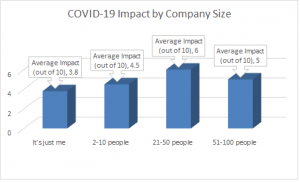
It’s essential to stay informed about these regulations to avoid penalties or loss of credentials. Management accounting focuses on providing internal stakeholders with relevant financial information. It aids in operational decision-making, cost management, and performance assessment. Many programs also emphasize the importance of ethics and business law, essential for an accounting career. Join over 1 million businesses scanning receipts, creating expense reports, and reclaiming multiple hours every week—with Shoeboxed. Join over 1 million businesses scanning & organizing receipts, creating expense reports and more—with Shoeboxed.
Continuing Education and Professional Development

The practice of bookkeeping dates back thousands of years, with its origins rooted in ancient civilizations. The earliest known records of bookkeeping can be traced to the Sumerians in Mesopotamia around 3500 BC, where they used clay tablets to record transactions involving livestock and grain. This early form of record-keeping laid the groundwork for more sophisticated methods that would evolve over time. In essence, bookkeeping is a Bookkeeping for Painters critical function that supports the financial integrity of an organization, enabling stakeholders to make informed decisions based on reliable data. Hard skills are skills you can learn through study or skills that you can easily quantify.
FAQs About Accounting Certifications for Beginners
One of the primary benefits of becoming a Certified Bookkeeper is the increased job opportunities and potential for higher salaries. Employers often prefer candidates with recognized certifications, as they indicate a higher level of professionalism and expertise. Additionally, the CB designation can enhance your credibility with clients, making it easier to attract and retain business. Moreover, joining professional associations can provide access to exclusive resources, including newsletters, research publications, and job boards. Being part of a professional community can also foster connections with other bookkeepers and accounting professionals, which can lead to mentorship opportunities and career advancement.
Bookkeeping Skills and Career Paths in Accounting
Preparing financial statements, including the balance sheet, income statement, and cash flow statement, requires accuracy and consistency to reflect the organization’s true financial health. They are also essential when following up with audits, tax prep, and maintaining paper trails with receipts. Bookkeeping is not just about numbers; it is a vital component of business operations that requires a blend of technical skills, education, and ongoing professional development. By focusing on essential skills, pursuing relevant certifications, and embracing technology, aspiring bookkeepers can carve out successful careers in this dynamic field. Whether you are just starting or looking to advance, understanding the landscape of bookkeeping will empower you to make informed decisions and thrive in your career. Bookkeeping is a vital function in any business, serving as the backbone of financial management.

This process compares financial records with bank statements to identify discrepancies, such as unrecorded transactions or errors, ensuring financial statements reflect the true financial position. Bookkeepers must be skilled at using reconciliation tools within accounting software to streamline this process. Familiarity with accounting software like QuickBooks, Xero, or Sage streamlines invoicing, payroll management, and bank reconciliation. Understanding how to use these platforms to generate reports and analyze data contributes to an organization’s financial health. Staying updated on technological advancements allows bookkeepers to improve workflows and offer strategic insights.
Differences Between Bookkeeping and Accounting
These include analytical capabilities, strong communication skills, and proficiency in technology. This skill fixed assets ensures the client that you can work with accuracy and fewer mistakes when handling a company’s financial records, general ledger accounts, and other financial data. This is a crucial skill since business owners use this information to make critical business decisions. The daily responsibilities of a bookkeeper are diverse and integral to the financial health of a business. From recording transactions to preparing financial statements and managing payroll, each task contributes to a comprehensive understanding of the company’s financial position.

- A typical career path starts with obtaining an accounting degree, followed by gaining relevant experience.
- Shoeboxed helps bookkeepers maintain accurate records effortlessly by digitizing receipts automatically.
- Each path requires different qualifications, and identifying an area of interest helps in pursuing targeted experience.
- In addition to coursework, obtaining a degree often fulfills education requirements to sit for certification exams, such as the CPA exam.
- These credentials often require passing exams and meeting experience requirements.
- In addition to base salaries, many bookkeepers may receive benefits such as health insurance, retirement plans, and paid time off, which can enhance overall compensation packages.
This will come across to clients as you have their best interests at heart and are always working hard to maintain that work ethic and relationship. If you want to be proactive, take the time to go over your client’s financial information. Look for any potential red flags or issues that a client could run into down the road. Staying on top of regulatory changes or future events that might impact your client’s financial situation is a way of being proactive.
- Job costing is essential for allocating costs accurately and ensuring the financial status of each project is clear.
- Expertise in Bookkeeping principles and practices enhances the credibility of and instils confidence in their ability to manage financial matters.
- Bookkeeping requires attention to detail, which, in turn, requires an immense amount of time.
- Below, we explore the essential skills that every bookkeeper should develop to thrive in their career.
- Progressing from a bookkeeper to a chartered or certified accountant requires valuable work experience and a clear understanding of potential career paths.
- Regularly review and reconcile financial records, even if not actively engaged in Bookkeeping tasks.
Given their high importance in the Financial Management domain, it is time to familiarise yourself with these Skills. Most jurisdictions require candidates to complete a series of rigorous examinations administered by a professional body. These exams test a candidate’s ability to apply accounting principles in complex scenarios. To obtain CPA credentials, bookkeeping skills candidates must meet specific certification requirements set by each state.
